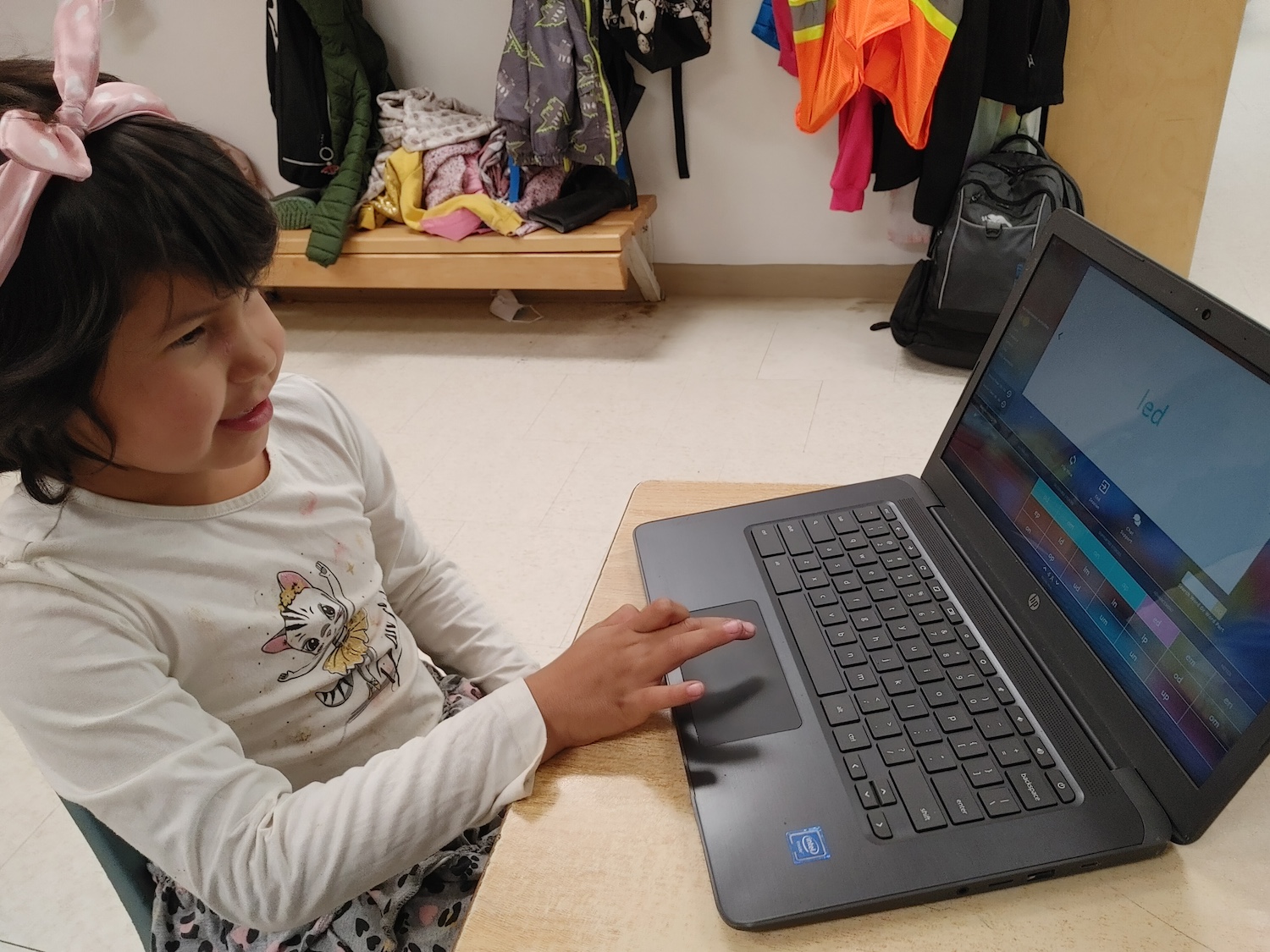
(Image courtesy of Chapter One Canada.)
Every year in Canada, 100,000 children who finish grade three are unable to read well enough for their grade level, according to Chapter One Canada.
“We're seeing kids in grades two, three, four and five who still don't know their letter names,” said Fabrice Grover, CEO of the nonprofit. “They can't pronounce the sounds that those letters make. They don't know how to sound out a three-letter word.”
Chapter One Canada is closing the reading gap by providing children with one-to-one support in their early education years.
“If kids aren't reading at grade level by the end of grade three, data shows that they're four times less likely to graduate high school,” Grover said. “And by the time they're 12, there's a five-year gap that forms.”
Socioeconomically disadvantaged families often lack the resources or time to support their children's reading development. There also may be a reluctance to return to school after the COVID-19 pandemic or due to poor transportation systems to get the kids to school.
“The parents might be frontline workers, or they might be newcomers to the country,” Grover said. “They might be residential school survivors and still dealing with the legacy of that intergenerational trauma. So the parents might not be as present as they could be compared to a more advantaged home where the families have more time to spend reading with their kids.”
This issue is worsened by stretched school budgets and schools’ inability to provide the extra support children need, be it due to cost or inadequate access to literacy specialists.
“There's a real need for one-to-one literacy instruction to help those kids catch up to their more advantaged peers so that they can have an equal shot at success in school and in life,” Grover said. “Our focus is on providing one-to-one reading support to families and to schools in a way that's cost effective and scalable.”
Chapter One uses a tutoring model known as "high-impact tutoring" or “short-burst tutoring.” It involves short, frequent 5-minute tutoring sessions that are intense and focused on specific literacy skills multiple times a week. These brief, targeted interactions keep children engaged and help them make substantial progress without overwhelming them.

A Stanford University study of 800 children across 13 schools in Broward County, Florida, found that 70 percent of children who received early literacy intervention from Chapter One tutors reached reading and writing benchmarks by the end of kindergarten. These children also showed a 36 percent higher reading fluency rate in first grade compared to those who didn't receive support.
“We're confident we're on the right track, and that we're using the right approach,” Grover said. “Our challenge is getting the word out to schools and figuring out how to enlist the support of folks who can sign up families for this kind of reading intervention.”
Since its inception in 2018, Chapter One has tutored nearly 5,000 children, with 2,000 in the most recent school year alone. Currently active in 25 schools across eight Canadian provinces, the organization expects to be nationwide by next year.
As a 30-year-old nonprofit that began in the United States, Chapter One Canada operates independently with a 75 percent Indigenous board, as it primarily serves First Nations children, Grover said.
“However, our mandate includes all children in need, and public schools are increasingly adopting our program,” Grover said. “We started in Wikwemikong and then Toronto District School Board in 2018, and since then, we’ve grown organically through word-of-mouth referrals.”
Chapter One utilizes a simple, app-based system that connects tutors directly to students via smartphones. Tutors, who are trained and salaried professionals, use the platform to identify and address learning gaps, synchronizing assessment with instruction. This tutoring model is equally effective when delivered online at home.
“We have 45 tutors right now, and we expect to double that number in the next two years,” Grover said. “And through our participation in HP’s Digital Equity Accelerator, we intend to triple the number of kids in the ‘at home program’ by December 2025.”
The nonprofit received a $100,000 cash grant and equipment credit as part of the HP Digital Equity Accelerator Program, which supports nonprofits advancing digital inclusion. The grant will be used to purchase touchscreen computers for student interaction and hire local people within the communities to help increase awareness about the program.
“HP has also connected us to MIT Solve, and they give us access to their own staff who advise us on different areas of need,” Grover said. “I was really impressed by MIT Solve’s process, where they help us identify the areas where we need some support and then recruit experts to help us with those pain points.”
Chapter One wants to make its educational model a staple in public education systems globally, starting from its roots in Indigenous communities. They are already in the United Kingdom and the U.S. with plans to expand further.
The program is funded by the Canadian government through Jordan’s Principle, a federal program created to ensure First Nations children can access the support and services they need, making it free for families and schools. Schools are charged a fee to implement the program, but it is subsidized by corporate sponsors, making it more affordable than for-profit alternatives. Chapter One has over 270 volunteers from corporations participating in the tutoring program.
“We want to diversify our fundraising strategies so that we're less reliant on corporate support, which is how we started,” Grover said. “The next step is to attract investment from philanthropists and large international foundations who could really take this to the next level. And because it's already a global initiative, we can take lessons from different countries, and with the advance of AI, figure out what is the most effective solution in each of the scenarios we encounter.”
Deeply invested in making its resources culturally relevant and accessible, Chapter One established the Global Free Library featuring original storybooks co-created with the communities they serve, particularly focusing on Indigenous cultures and languages.
“This initiative came out of a request from the education leaders in the Manitoulin region where we first started in 2018,” Grover said. “They loved our program but didn’t recognize their kids in the text that we were using to help them learn to read.”
Users can engage with the texts and click on words to hear pronunciations. “Our Global Free Library commissions authors and illustrators from around the globe to create original stories that will inspire the children and adults who read them,” Grover said. “We want to triple the number of unique users of the global free library [by December 2025*].”
*Editor's note: Updated on June 28, 2024.

Abha Malpani Naismith is a writer and communications professional who works towards helping businesses grow in Dubai. She is a strong believer in the triple bottom line and keen to make a difference. She is also a new mum, trying to work out a balance between thriving at work and being a mum. In her endeavor to do that, she founded the Working Mums Club, a newsletter for mums who want to build better careers and be better mums.














